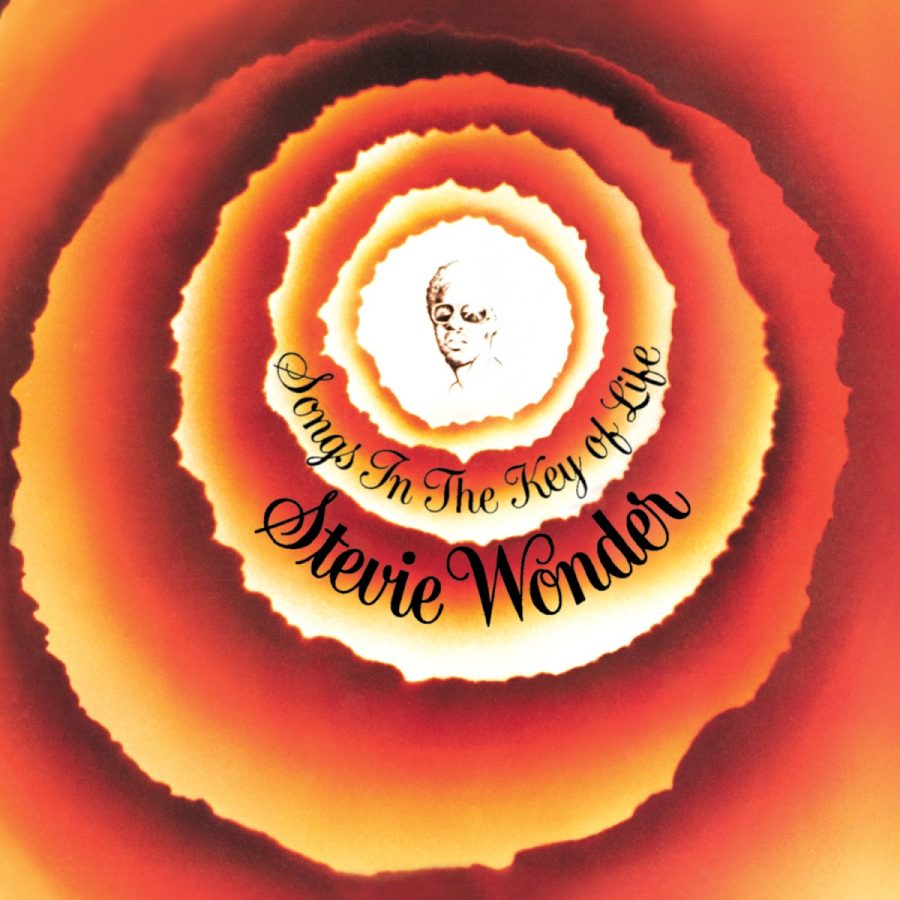Essential Listening: Wonder’s `Key’ achievement remains a soul masterpiece
Cover Art courtesy Motown Records
Songs in the Key of Life was released in September 1976, debuting at #1 on the charts.
September 14, 2022
Tired of your Spotify playlists? The Purbalite is here to help with our Essential Listening series.
With Songs in the Key of Life, Stevie Wonder crafted one of the most delightful and brotherly albums ever made.
The 18th studio album Wonder created under Motown Records, Songs in the Key of Life contains some of the most masterful soul and R&B tracks ever created. The album has songs for any person, any mood, any time. Whether you want an upbeat funk track or a mellow, magical tune, Songs in the Key of Life has it.
The record opens with “Love’s In Need of Love Today.” This seven-minute long track is the perfect way to introduce a listener to the album, with a slow, passionate deconstruction of the idea of “love.” Wonder preaches how the world lacks in love, preaches how to stop the hate, and preaches how to love your fellow man.
This message, put at the start of the album, leaves a lasting impression, with this idea of being revisited later on the album.
While Songs in the Key of Life might be best remembered for its fun, enjoyable, and light-hearted tracks, rarely mentioned are the social messages present on the LP.
“Black Man” might be the most important track on the album, with its ideas still longing to be heard today, even 45 years later. This song also advocates for the love of everyone.
It covers the great accomplishments of many different people, all of varying races, to show the equality of all, no matter the color of their skin.
Wonder sings “It’s time we learned / This world was made for all men.” With the hostility and tensions that are currently plaguing the world, it would behoove the world to take something from his message.
Wonder again addresses his perceived issues in society with “Pastime Paradise.” The track, starting with striking cowbell and synthesized strings, emphasizes the idea of the world’s laziness and materialism.
The track also has more subtle messages against racism, as Wonder sings “They’ve been wasting most of their time / Glorifying days long gone behind.” The track continues building throughout, ending with a coda of synthesized strings again.
This song was again used to cover a social message 19 years later, when it was sampled on the triple platinum mega-hit “Gangsta’s Paradise” by Coolio. It’s almost guaranteed that if a listener recognizes the strings of “Pastime Paradise,” it would be from hearing Coolio’s Grammy-award winning hit.
But of course, this album is best remembered not for its social messages, but for the magic of its mystical and merry songs.
“Sir Duke,” perhaps the most famous track from the album, is a remembrance of the late, great jazz pianist Duke Ellington. The track opens up with a blast of trumpet and saxophone, leading into an almost four-minute celebration of Ellington and music as a whole.
The horns are present throughout, with Wonder’s singing being backed up by infectious percussion and bass guitar work.
“I Wish” covers the life of a younger Stevie Wonder, and all of the trouble he got into as a kid. The song has an almost mischievous tone to go along with the mischievous topic.
The playful material is accompanied by a bouncy bassline and exciting alto saxophone. This instrumentation adds to the slightly different tone that the song creates.
“Isn’t She Lovely,” a ballad written for Wonder’s newborn baby daughter, describes his pure joy for his child. His happiness stimulates the listener to feel the same feeling as it brims with jubilation.
The song ends with a harmonica solo from Wonder himself, which only adds to the jovial atmosphere of the track.
Songs in the Key of Life is almost, if not, the R&B/soul album. The genre, going forward from the album’s release, would be defined by this record.
The album has had a lasting influence on every corner of music. Songs in the Key of Life, as a musical work, shows Wonder’s mastery over music.




